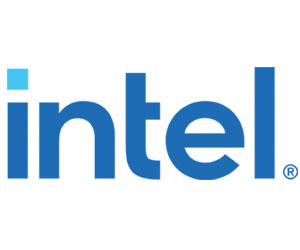NCCU Bridges Tech and Law in a Diverse Workforce
At North Carolina Central University (NCCU), Intel pledged $5 million between 2021 and 2026 to create a tech law and policy center. Intel executives have joined the center’s board to help form its certificate program.
“This is a center that is designed to expose our students to all of the varied jobs within the legal tech space, to help them understand how to leverage technology so that they can do their jobs as lawyers even better, and to also expose them to emerging jobs and areas within legal tech,” Dawson says.
With its investment, Intel has pledged to help create more diversity in tech and law.
“Our investment in NCCU is only the beginning, and we will continue our efforts to provide more equitable access to tech, legal and policy careers,” Steven R. Rodgers, Intel’s general counsel, said in a statement.
Tech companies are reaching out to law schools to help build up the tech legal workforce, according to Dawson. Intel is providing legal expertise and faculty training as well as summer internships at the company. The chipmaker is looking to help build the next generation of corporate attorneys by offering lectures and mentorship, per the statement.
“We have a pipeline of students who are interested in tech and law,” Dawson says. “You can’t have a discussion about technology without having legal experts at the table,” she says.
She also notes that African Americans lack adequate representation in the legal field, especially in the legal tech space.
“There’s a need for lawyers who have an understanding of these legal tech areas and issues, because those roles are increasing,” Dawson says. “There are not enough tech-savvy lawyers who can fill those roles, and there’s an incredibly robust talent pool within the Black community.”
READ MORE: Emerging technologies help HBCUs retain students.
The tech industry also needs lawyers with experience in dealing with the disparities that AI causes, according to Dawson.
“For example, algorithms and AI models are often used in the criminal legal system. When judges use algorithms to make decisions about parole or release, and when law enforcement uses AI models to decide where to police, the result is often the further aggravation of disparities, because the models are flawed,” Dawson says.
In addition, she says, the data that AI models use could be skewed.
“Lawyers are needed to ensure that technology is used for the right purposes and not used is a way that harms already marginalized communities,” Dawson says. That’s why Dawson teaches an AI and law class at NCCU.
The tech industry also needs lawyers that can help interpret privacy laws, such as the General Data Protection Regulation or the “patchwork” of guidance in the United States, Dawson said.
Just as Intel is supporting both HBCU undergraduate institutions and NCCU’s School of Law, NCCU also plans to work together with STEM programs at HBCUs to help prepare students for tech opportunities in the legal space.
“Intel’s gift has allowed us to do a lot very quickly, in terms of building our curriculum and getting this law and technology certificate program together,” Dawson says. “Facilitating the growth of STEM students will provide a greater pipeline into the legal tech space, which will help buttress our technology leaders.”
To learn more about Intel’s partnership with the CDW Legacy Excellence program, click here.
UP NEXT: Muhsinah Morris is leading Morehouse College into the metaverse.
Brought to you by:













